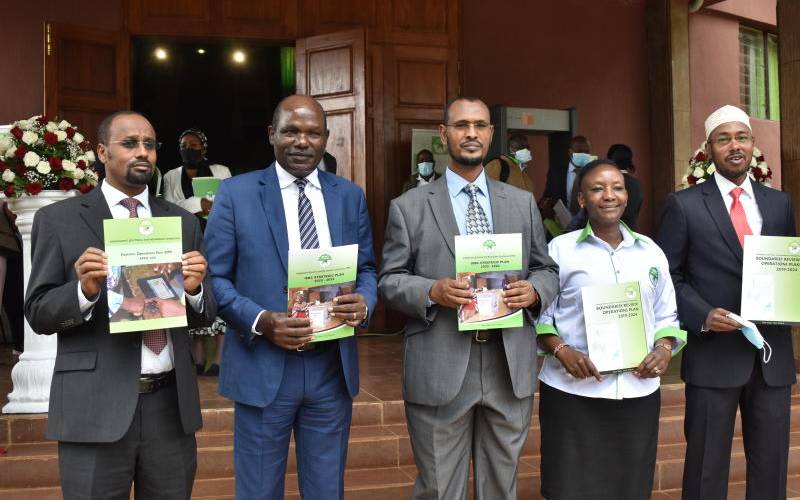×
The Standard e-Paper
Join Thousands Daily

IEBC Commissioner Boya Molu, Chairman Wafula Chebukati, Commissioner Abdi Guliye and Acting CEO, Marjan Marjan, during the launch of strategic plan 2020- 2024.[Samson Wire,Standard]
It will be impossible to create new constituencies before next year's elections, the Independent Electoral and Boundaries Commission has declared. The IEBC said the earliest the boundary delimitation can be completed is March 2023.